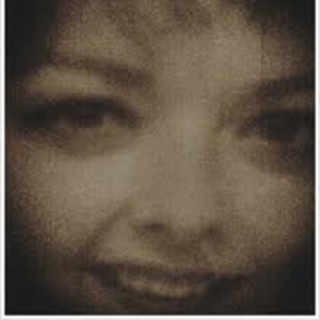
"Ted Talker" Priya Parker
In The Art of Gathering, Priya Parker argues that the gatherings in our lives are lackluster and unproductive--which they don't have to be. We rely too much on routine and the conventions of gatherings when we should focus on distinctiveness and the people involved. At a time when coming together is more important than ever, Parker sets forth a human-centered approach to gathering that will help everyone create meaningful, memorable experiences, large and small, for work and for play. Drawing on her expertise as a facilitator of high-powered gatherings around the world, Parker takes us inside events of all kinds to show what works, what doesn't, and why. She investigates a wide array of gatherings--conferences, meetings, a courtroom, a flash-mob party, an Arab-Israeli summer camp--and explains how simple, specific changes can invigorate any group experience.
11 Juni 201919min

Christopher De Hamel and his Meetings with Remarkable Manuscripts
Claudia Cragg (@ClaudiaCragg) speaks here with Christopher de Hamel, whose most recent book is Meetings with Remarkable Manuscripts. This work won the Wolfson History Prize for history written for the general public and the Duff Cooper Prize for best work of history, biography, or political science. For 25 years from 1975, he was responsible for all catalogues and sales of medieval manuscripts at Sotheby's worldwide, and from 2000 to 2016 he was librarian of the Parker Library in Cambridge, one of the finest small collections of medieval books in the world. De Hamel is a Fellow of Corpus Christi College, Cambridge University. He has doctorates from both Oxford and Cambridge, as well as several honorary doctorates. He is a Fellow of the prestigious Society of Antiquaries of London and a member of the Roxburghe Club.
22 Maj 201931min

#WaPo Journalist and Author Liza Mundy on the 10,000 US 'Code Girls'
speaks here (reprise of earlier interview) with Liza Mundy on . This is the story of the young American women who cracked German and Japanese communications code to help win the Second World War. Recruited from settings as diverse as elite women’s colleges and small Southern towns, more than ten-thousand young American women served as codebreakers for the U.S. Army and Navy during World War II. While their brothers, boyfriends, and husbands took up arms, these women went to the nation’s capital with sharpened pencils–and even sharper minds–taking on highly demanding top secret work, involving complex math and linguistics. Running early IBM computers and poring over reams of encrypted enemy messages, they worked tirelessly in a pair of overheated makeshift code-breaking centers in Washington, DC, and Arlington, Virginia, from 1942 to 1945. Their achievements were immense: they cracked a crucial Japanese code, which gave the U.S. an acute advantage in the Battle of Midway and changed the course of the war in the Pacific Theater; they helped create the false communications that caught the Germans flat-footed in the lead-up to the Normandy invasion; and their careful tracking of Japanese ships and German U-boats saved countless American and British sailors’ lives. is a journalist and author of four books, apart from . She is a former staff writer for the Washington Post, where she specialized in long-form narrative writing, and her work won a number of awards. Her 2012 book, , was named one of the top non-fiction books of 2012 by the Washington Post, and a noteworthy book by the New York Times Book Review. Her 2008 book, , a biography of First Lady Michelle Obama, was a New York Times best-seller and has been translated into 16 languages. Her 2007 book, , received the 2008 Science in Society Award from the National Association of Science Writers as the best book on a science topic written for a general audience. She writes widely for publications including The Atlantic, Politico, The New York Times, Slate, and TIME. She has appeared on The Colbert Report, The Today Show, Good Morning America, CBS This Morning, MSNBC, CNN, C-Span, Fox News, Democracy Now, Bloggingheads TV, the Leonard Lopate Show, National Public Radio’s Weekend Edition, All Things Considered, the Diane Rehm Show, Fresh Air with Terry Gross, Tell Me More, Talk of the Nation, On Point, and other television and radio shows. A senior fellow at New America, a non-partisan thinktank, Liza has an AB from Princeton University and an MA in English literature from the University of Virginia. She lives in Arlington, Virginia, with her husband and two children, just about a mile from Arlington Hall, where the Army code-breaking women worked, and about four miles from the Naval Annex. At various points in her career she has worked full-time, part-time, all-night, at home, in the office, remotely, in person, on trains, in the car, alone, with other people, in dangerous places, under duress, and while simultaneously making dinner.
15 Maj 201928min






















